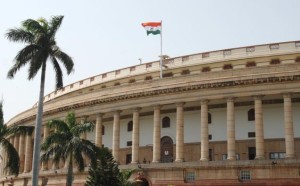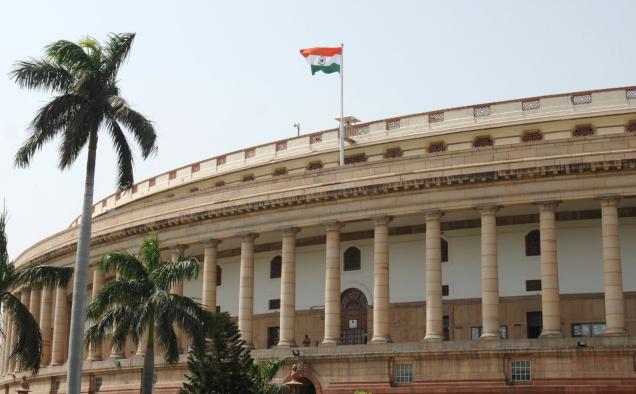On 30th March 2017, the Indian parliament passed Finance Bill 2017. The passage of this bill before the beginning of next financial year justifies Govt.’s move of advancing the date of presenting Union Budget and thus will lead to early implementation of proposals.
Important events leading to the passage of Finance Bill 2017:
Finance Bill 2017, which was laid as Money bill was passed with 40 amendments in Lok Sabha earlier this week.
- On 29th March 2017, Rajya Sabha (Upper House of Indian Parliament)had returned the Finance Bill 2017 to the Lok Sabha with five amendments moved by the member of opposition party – three amendments moved by Digvijay Singh of Congress Party and two amendments moved by Sitaram Yechury of CPI-M party. In this context, it is important to note that BJP-led NDA Govt. does not have a majority in Rajya Sabha.
- The five amendments made by Rajya Sabha were pertaining to curtailing the powers of tax authorities and placing a limit on donation made by companies to political parties.
- On 30th March 2017, during the debate on amendments in Lok Sabha, Union Finance Minister Mr. Arun Jaitley said that amendments made to Finance Bill 2017 by Rajya Sabha are not acceptable to Govt. Thereafter Lok Sabha passed the Finance Bill 2017 through voice vote, rejecting all five amendments made by Rajya Sabha.
Key Provisions about Money Bill as per Indian Constitution:
Details pertaining to Money Bill are provided in Article 110 of Indian Constitution. It primarily deals with subject of taxation and other matters which have financial implications for Government of India.
- Money Bills can be introduced in Lok Sabha only. Whether a particular bill is a Money Bill or not, is to be decided by Speaker of Lok Sabha. His/her decision in this regard is binding upon both the houses.
- After the Money Bill is passed by Lok Sabha it is sent to Rajya Sabha. Power of Rajya Sabha in context of Money Bill is limited. It can amend the Money Bill and send it back to Lok Sabha.
- But such amendments by Rajya Sabha are only of recommendatory nature. The Lok Sabha can accept or reject the amendments and pass the Bill for President’s assent. In short, the ruling party in Lok Sabha has full control over the origin and fate of Money Bills.
- Following President’s assent to Finance Bill 2017, several reform oriented proposals of Budget 2017-18 will become law. Most prominent ones will be those related to electoral funding, tax evasion, ease of doing business and drive towards cashless economy.
Financial Year 2017-18 will prove as the litmus test year for the NDA government, as it will move ahead to implement the Goods and Services Tax (GST) and will also try to leverage the gains made post demonetisation drive.
Latest Development on GST Bill:
Aimed at amalgamating all indirect central Govt. taxes, PM Narendra Modi’s Govt. has set a deadline for implementing Goods and Services Tax (GST) by 1st July 2017.
- GST has been dubbed as India’s most comprehensive tax reforms since independence. On 29th March 2017, Lok Sabha approved four crucial bills required to implement Goods and Services Tax (GST).
These four bills are
(i)Central Goods and Service Tax Bill
(ii) Union Territory GST Bill,
(iii) Integrated-GST Bill and
(iv) GST (Compensation to States) Bill. Maximum GST rate will be 40





